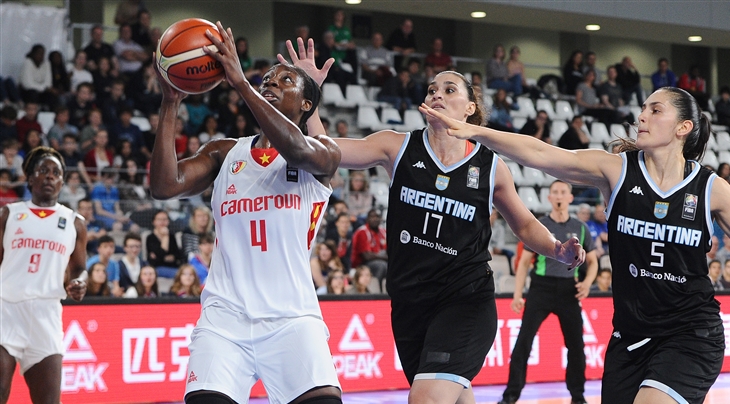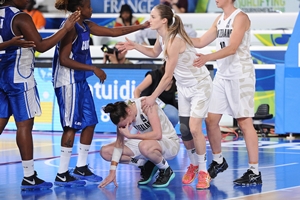
Nantes WOQT could have been better for Cameroon
SHEFFIELD (Julio Chitunda’s African Message) - As Cameroon missed out qualification to the Rio Olympics via the 2016 FIBA Women’s Olympic Qualifying Tournament (WOQT) in Nantes, France, it’s time to look at the numbers and how the Central Africans did.
Next week, I will look at Nigeria’s WOQT performance.
As a matter of fact, the WOQT could have been better for Cameroon.
Here is my look at Cameroon's two defeats that defined their feat in the competition.
Turkey controlled the contest from start to finish, never gave Cameroon a chance nor trailed and led by as much as 30 points.
The Central Africans rarely converted a team play, and it came as no surprise that they finished with only six assists against Turkey's 22. Cameroon shot only 3-of-15 from three-point range but only converted 25 percent of their field goals attempts. Turkey gave Cameroon a real lesson of team-effort.
While Britany Starling and Ramses Lonlack, the only Cameroonians to score in double figures, combined for 37 points, five Argentinians scored at least 10 points or more. Lonlack and Starling finished with more than half of Cameroon's 64 points. Argentina never trailed, led by as many as 20 points to become a deserving winner of the contest.
Talking to the media at the press the conference after Cameroon's loss to Cameroon, Priscilla Mbiandja offered some insight about Cameroon's experience in Nantes.
The only way we can get better is to have challenges, play scrimmages. For me this was a step forward. The more competition we have, the better we will get. - Mbiandja
What the numbers say about Cameroon's performance in Nantes
1. Even though Lonlack and Mbiandja, two veterans from the team finished runners-up at last year’s AfroBasket Women, insisted prior to the WOQT that they travelled to Nantes to compete, the Central Africans were far from being competitive, and the numbers speak for themselves.
2. In two Group B games, Cameroon lost by an average margin of 18.5 points. If Cameroon are to remain among top African teams they would need to improve their field goal percentages, and that requires a lot and long-term preparations.
3. In two Group Phase games, Cameroon never took the lead and trailed by as many as 30 points against Turkey.
4. Although Lonlack remained at her very energetic and athletic pace, she lacked support as her team insisted on individual plays.
5. Cameroon finished the tournament-low 8.5 assists per contest. That’s not good enough for a team aspiring to qualify for the Olympics via WOQT.
6. Cameroon’s bench contributed no more than 17 points in two games.
7. Cameroon finished with the tournament-low 55 points per contest.
8. Cameroon lacked size inside. Despite Starling’s team-high 6 rebounds per game, Cameroon grabbed 32.5 rebounds in two games.
9. Cameroon committed a tournament-high 22 fouls per two games. That’s far too many, especially when they face teams with high free-throw percentages.
10. Cameroon returned home with a 0-2 mark, and with a lot of room for improvement.
Overall, the WOQT sent a clear message to Cameroon's Basketball Federation (FECABASKET). Treat the game of basketball more professionally, and good things could happen.
Julio Chitunda
FIBA
FIBA's columnists write on a wide range of topics relating to basketball that are of interest to them. The opinions they express are their own and in no way reflect those of FIBA.
FIBA takes no responsibility and gives no guarantees, warranties or representations, implied or otherwise, for the content or accuracy of the content and opinion expressed in the above article.

















